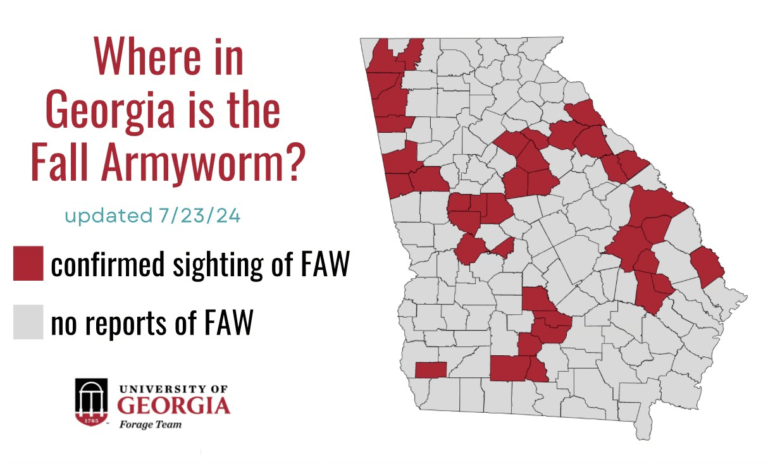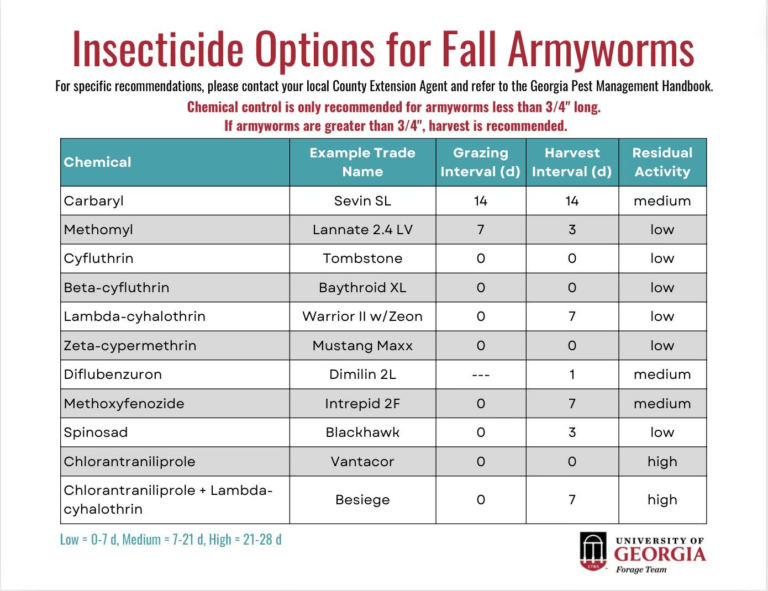Fall armyworms are confirmed in Chattooga and other Northwest Georgia counties. Armyworms are by far the dreaded caterpillar in pastures and hayfields. “They are out earlier this year which is alarming,” Rebecca Thomas, Chattooga County Extension Agent said.
These pests can quickly decimate a field of any forage crop, as they love to feed on the plant’s green leaf/grass part. Small fall armyworms tend to stay in the canopy during the day, and their feeding is less damaging and more challenging to see.

The youngest larvae do not eat much, but the mature larvae can eat more than all other ages put together. Large fall armyworms are relatively easy to find because of their size.
They are typically most active in the early morning or late afternoon when temperatures are cooler but will feed throughout the day. Most producers will identify fall armyworms at the fully grown larvae stage.
They can be up to 1.5 inches long and are light green to nearly black with light and dark stripes that stretch horizontally along the worm’s body.
One of their most distinct characteristics is an inverted Y-shape on the head of the worm.
Once these have been confirmed in the an area, farmers need to be scouting fields for these pests. If armyworms are in a hayfield and worms are 3/4 inch or bigger, consider harvesting the hay and avoid the insecticide application.
If the use of insecticides becomes necessary, it is imperative to strictly adhere to all label instructions. Insecticides are designed for specific life stages of the fall armyworm, with smaller caterpillars being easier to control than larger ones. Insecticides are only recommended when the fall armyworms are less than ¾” long. Farmers and Producers are strongly encouraged to seek specific insecticide recommendations from the Extension office to effectively manage these pests.
